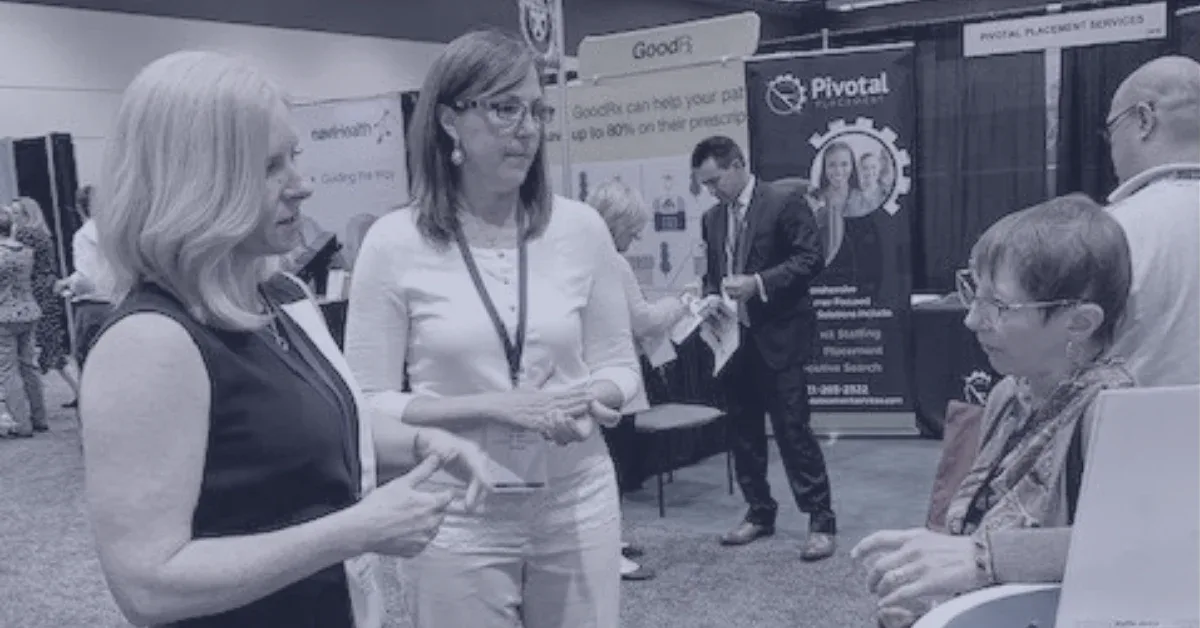Seattle may have a reputation for rain and cloudy skies, but it was a bright and cheerful crowd that greeted us at the American Case Management Association’s annual National Conference in Seattle this week. I had the pleasure of speaking with so many industry leaders about the challenges they face, the future of the discipline, and what I could do to support the amazing work they do day-in and day-out.
On Tuesday morning, I had the pleasure of presenting at a breakout session alongside Kaitlin Shotsberger, Executive Director of Quality and Case Management at St. Clair Hospital. Our session, entitled “Artificial Intelligence and the New Era of ‘Smart Utilization’”, delved into the topic that seems to be on everyone’s mind: artificial intelligence (AI). Our approach was a little different; rather that dive into the “what,” we jumped right into the how: how can artificial intelligence improve your workday?
I’ll borrow an analogy shared with me by a client recently: think about your day-to-day tasks at your job. Make a list of everything you do, then put an X next to everything that you’d consider an administrative burden. If you’re like me, there might be quite a few X marks on the page. Those X’s are what artificial intelligence can and should be used to minimize, refocusing your time on your important tasks.
Rather than think about AI as some abstract concept or computer science wizardry, I encourage people to think about AI in terms of what it can do: absorb vast amounts of data, find patterns, discover connections, and predict to a high degree of accuracy what those patterns can mean for other similar cases. How does this improve the workday of a utilization review professional, you might ask? Xsolis works to put the power of AI in the hands of clinical staff: by using analytics and AI to assess real-time data from the electronic medical record, Xsolis allows nurses and clinicians to assess the full clinical picture of each patient, stratify and prioritize patients according to clinical merit and their review need, and automate cases which don’t require a comprehensive manual review, freeing up staff time to focus on patients.
During our talk, Kaitlin shared how this approach has been adopted at St. Clair Hospital, a 329-bed acute care facility in Pittsburgh, PA. Working in a dyad case management model (where nurses cover both discharge planning and utilization review), Kaitlin’s team works to support the facility amidst a competitive market and complex payer dynamics. Her hospital leadership wanted to focus on key metrics such as the hospital’s observation rate, as well as making workflow improvements and nurturing positive payer relations. When introduced to the Xsolis team, Kaitlin knew she had found the right partner. Since going live with Xsolis, Kaitlin’s team has shifted mindsets to “overhaul the old way of thinking” and take a true clinical look at patients. They’ve right-sized key metrics and embraced an AI-supported approach to decision-making. Her story is compelling, and one that I hope becomes the new standard for case management and UR leaders.
Kaitlin summarizes it best: “we have the opportunity to transform utilization review by thinking differently.” For St. Clair and a multitude of other hospitals across the nation, that transformation has already begun.
To learn more about how Xsolis can support you, schedule a demo today.
